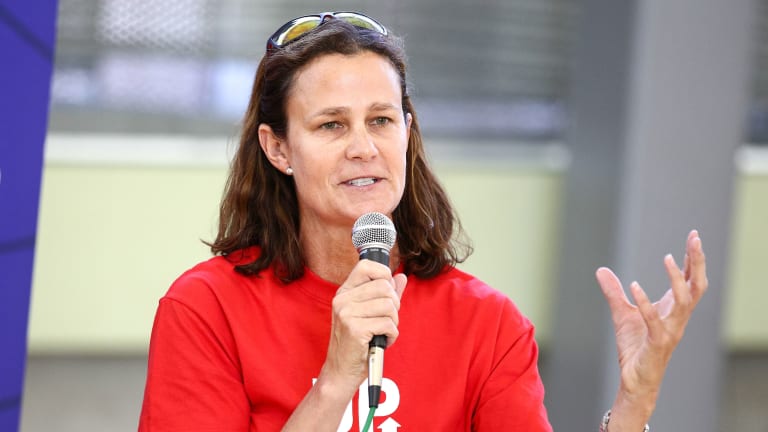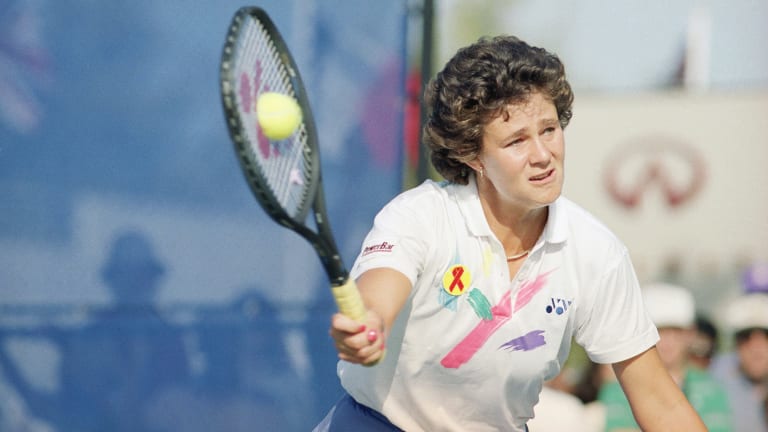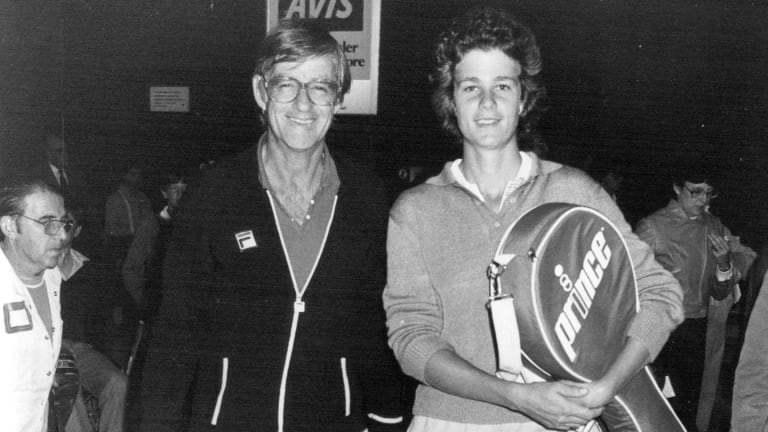TENNIS.com: One part of your story that really struck me was that you never felt able to tell your mom about everything that was going on. Can you talk about why, and as a mom yourself, what advice do you have for parents in keeping kids safe in sports?
SHRIVER: It's a really tough thing to have to unpack with your parents, who many times send their young player off thinking that they're being chaperoned correctly. My dad died in 2006 and I had actually shared this with him, but I'd never told my mom [who passed away in August last year].
For parents, I think: don't assume anything. Ask a lot of questions and really do some research about a coach, see what their record is. There's ways to do a lot of research now that wasn't available back in the day. But just, don't assume it's not possible.
I coached my kids’ middle school, and I went through that safeguard training. You have to keep your eyes wide open and don’t assume anything about any adult who's involved with your child, especially if it involves travel or a lot more times of the day than normal school hours.
TENNIS.com: For a pro player who currently finds themselves in a similar situation, what resources are available? I know for example, the WTA has built a pretty robust player health and mental wellness team with physios who are trained to recognize signs of abuse and address the issue with players.
SHRIVER: I would hope that players feel there are a multitude of places they could go to report, not just the WTA. They could report to their federation, they could report to the ITF, they could report to older players or players on the council.
I think the tour now has a much more professional health service department than I would have ever known in my 19 years of playing. When I left the tour in the mid-'90s, it was just starting to really become a multi-layered health and wellness program. And if I understand correctly, a lot is already in the pipeline with new policies ready to go in early 2023.
But to me, it seems like we can do more, and do some things sooner. I actually think—and I would say this to [WTA CEO] Steve Simon—that this is an area where they’ve dragged their feet.
TENNIS.com: Stories like the one you’ve shared are unfortunately all too common in women’s sports, and especially individual sports. What’s the biggest lesson that tennis needs to take away from this?
SHRIVER: That what's happening now is not good enough, there's just too many instances of team members having complicated relationships with players. Just sitting court-side and observing body language between a player and coach through decades now, you're just aware. There's way, way too much emotion in certain interactions that you know, this is not just about tennis.
It's not like I'm the first to have come forward, but I’m probably a pretty high profile one that's come forward with real details of how it started... and how it hurt my performance, how it hurt my life, how it hurt my ability to develop healthy relationships. So I just want to help young people that need to know, it's okay to reach out for help.
And I also want to hold the coaches and the teams much more accountable. Honestly, they go hand in hand. When the lines are crossed into the personal side, I don't want it to just happen. I want there to be counseling, I want there to be a lot of education on both sides and I want there to be repercussions.
Honestly, I want it to be more like a normal workplace, where there's human resources, there's reporting, all sorts of things. We can't have unprotected workplaces just because we're this traveling tennis tour. We have to have workplaces with safe policies.
I guess my hope is that the sport realizes that there is a better way of conducting this business. There needs to be better safeguarding, and coaches and team members need to be held more accountable.


